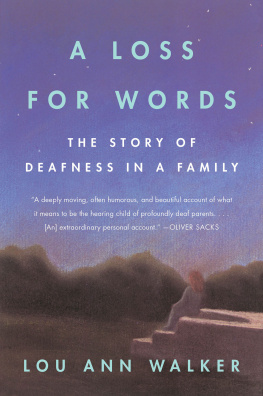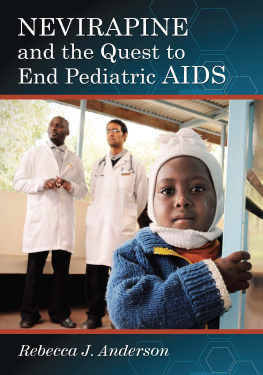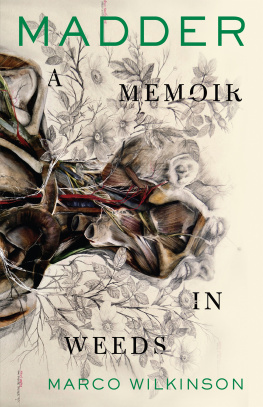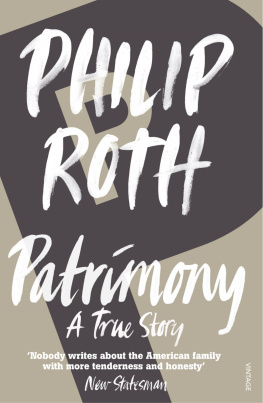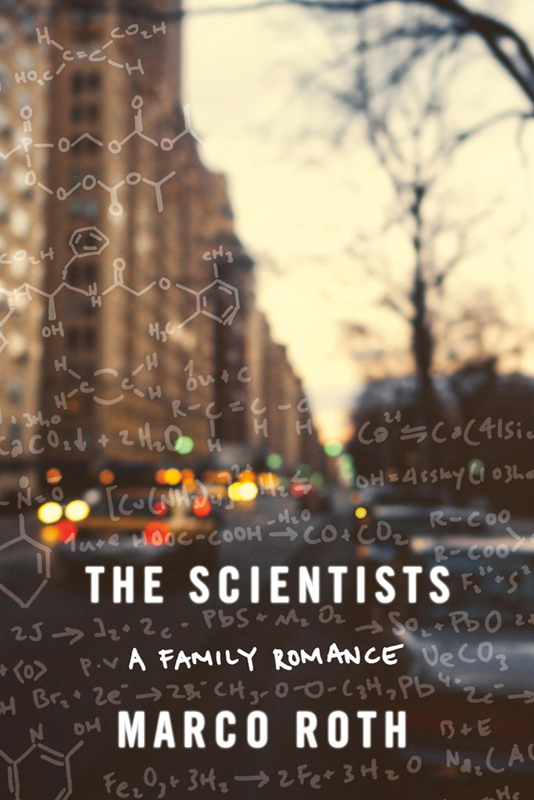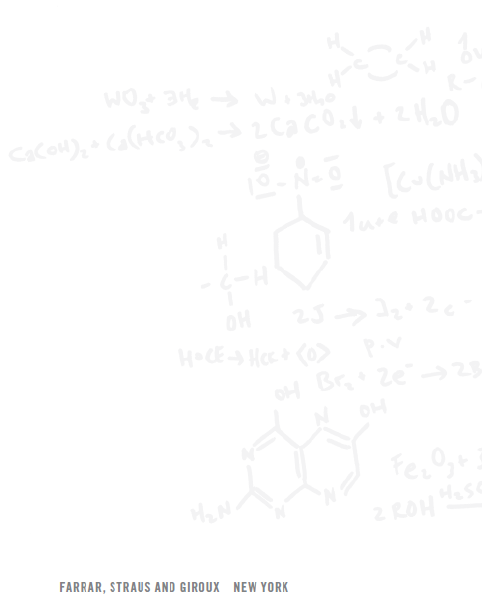
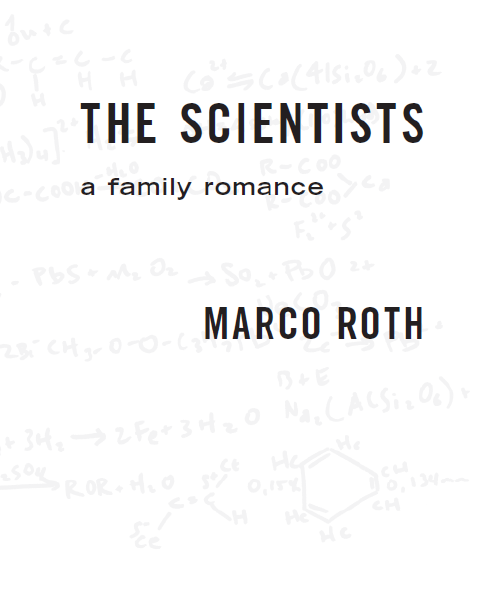
The author and publisher have provided this e-book to you for your personal use only. You may not make this e-book publicly available in any way. Copyright infringement is against the law. If you believe the copy of this e-book you are reading infringes on the authors copyright, please notify the publisher at: us.macmillanusa.com/piracy .
For Imogen and in memory of Eugene Roth (19391993)
CONTENTS
OVERTURE
As usual, Im beginning too late. My independent research report for biology is due in a week and I havent even considered a topic. Somewhere between washing my hands for dinner, a foiled attempt to avoid looking at the bathroom mirror, and the walk down the hallway to the kitchen, I manage to suppress the sense that the situation is incurable. Perhaps, like the Romanov dynasty with their hereditary hemophilia, my family carries a recessive procrastination gene, held at bay for three generations of steadily ascending American life, until, in me, it burst into full expressive flower. This thought quickly gives way to the wish that my pubescent skin might somehow become spotless if I only washed my face an additional twice a day, a resolution I intend to carry out immediately. I return obediently to the bathroom, calling out to my parents to start eating without me.
At the table, where they havent started, I begin, instead, to explain my assignment, my predicament. Excuses mount as my mother quickly dishes pasta onto my plate. Its not my fault Im late. Im busy, really. And am I really going to become a doctor, a scientist? I just spent two hours before dinner practicing scales, arpeggios, and the second violin parts for the youth orchestra (one hour, I admit, was actually spent slyly watching television or staring out the window at Central Park in anticipation of a scolding that never arrived). I attend the Friday meetings of the schools literary magazine club. Im in the school play. Twice a week, I visit a psychiatrist, a few blocks from my school, as my father once visited a psychiatrist. Although he hates them nowtheyre not really doctorshe still pays for me to go, an unavoidable initiation ritual into a culture that believes no one should suffer, least of all in public.
Anyway, who can decide, at sixteen, who one is or what one should be? Isnt that the whole point of this liberal arts education Im getting, to learn as much as possible about the world before becoming a person in that world? Plus, its not even a real paper, like the ones my father used to write before his illness, The Something Something of P. falciparum , the sort of thing that requires actual medical research. Just a glorified book report, a digest of existing discoveries, a test of how well we can summarize. I know how to summarize. I can write summaries of my summaries, thats how good I am.
My father dissects a piece of veal schnitzel he will eat less than half of. He complains that some microorganism has colonized his tongue, making everything taste like wood pulp or mush. Id gladly finish it for him, if I hadnt recently declared myself vegetarian. Maybe I should write something like When Good Bacteria Go Bad, or Biology as Biography.
You could write about reverse transcriptase inhibitors, my father says. And, before Im even aware of having agreed, he takes control, staggering up from the table on unsteady, atrophied legs, returning a few minutes later carrying a heavy metal briefcase in both hands, already open. He sets it down on a pile of magazines at the far end of the table and roots around before coming up with several of the most recent articles on the things, xeroxed from scientific journals. He hands them to me and tells me to read them that night and ask him questions in the morning, when, he says, hes usually at his best. My father has given me the papers about the drugs that could save his life.
* * *
The next morning is not what my father calls a good morning. I visit him in bed before I go to school. He may be feeling unusually weak, or feverish, or nauseated. I dont get into specifics. Over the last two years, there have been fewer and fewer good mornings, but my mother and I always ask him whether it might be one, as if repeating the question could influence the answer.
All the same, he makes an effort to quiz me about the articles. I understand well enough, now, that reverse transcriptase, although it sounds vaguely like some kind of learning disability, is the name of the enzyme that makes the AIDS virus so destructive of the human immune cells it occupies. A reverse transcriptase inhibitor tries to block that enzyme from working. The drugs my father takes, with their mysterious triple initials, AZT and DDI, actually are proteinsazidothymidine and dideoxyinosinethat somehow are supposed to trick a crucial HIV enzyme into bonding with them instead of the DNA components of the human immune cells the virus occupies, the way certain carnivorous plants are able to mimic the mating chemicals of the insects they feed on. The principle sounds simple enough, but I have no idea how this works, on the molecular level.
Like most sixteen-year-olds, Im getting my science through metaphors. An enzyme, my biology teacher tells us, is like an ignition key that needs to fit a lock to start the motor running, or start any kind of process; every key, every lock is different. At the time, this is enough for me; I am not the kid in my class who is going to ask how such keys are made, or whether we can pick the lock. Keys and locks are the business of locksmiths or thieves. At Dalton, a private school on Manhattans Upper East Side, no one plans on becoming a locksmith, while the thieves among us have their eyes on their parents liquor cabinets or stock portfolios. Key into lock, so we can drive: the relation is what matters, not the mechanics, or so I think.
Instead, I imagine a gang of supersubtle saboteurs so lithe and practiced they will never set off an alarm. This gang, the HIV faction, for reasons of its own, breaks into a factory that makes parts for airport scanners. The gang members wield a special device that unlocks and reprograms the factory computers. This device is the reverse transcriptase enzyme. They then reprogram the assembly line, so that out of the same parts used to make airport scanners will come the very materials that allow the gang to slip, with all its equipment, undetected, from airport to airport and factory to factory. Once a factory is sabotaged like this, theres no possible way for it to go back to making what its supposed to make. After enough of the wrong parts are made, the factory simply stops working at all.
Now I consider the factory owners. How do they stop this? They can change the security at the factory gates, but they dont yet understand how the saboteurs get in. They could try to check all of their employees to make sure none of them belong to this mysterious anarchist league, but it would take too much time. Instead, they try to sabotage the saboteurs, putting a special lock on their computers that will detect the device and render it harmless. So, the reverse transcriptase inhibitor. The only problem is that this new invention is unpredictable, secret even from the employees. Mistyping a basic password is enough to send the whole factory into lockdown mode, while perfectly innocent workers become suspects and are led away. No wonder my father cant get out of bed with all this action going on beneath his skin, or perhaps its the effort to imagine it all that keeps him pinned there.


